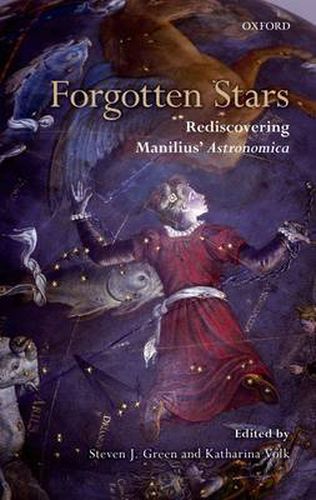Readings Newsletter
Become a Readings Member to make your shopping experience even easier.
Sign in or sign up for free!
You’re not far away from qualifying for FREE standard shipping within Australia
You’ve qualified for FREE standard shipping within Australia
The cart is loading…






The Astronomica of Manilius is a poem in five books, at least partly written under the Emperor Augustus, which purports to teach the reader the art of astrology and the means by which an accurate horoscope may be cast. It is, therefore, a text from the classical age of Roman literature which deals with a topic to whose enduring popular interest any daily Western newspaper will testify. And yet, despite some notable modern exceptions, the infamously harsh verdict of Manilius’ most ardent modern critic, A. E. Housman, continues to cast an imposing shadow on the poem. Forgotten Stars seeks to lift this shadow once and for all, as it brings together an international contingent of scholars to analyse this dynamic poem from a variety of perspectives. Matters of literary interest are complemented by approaches which assess the work’s socio-political, philosophical, scientific, and astrological resonance, as well as its influence on later Renaissance writers.
$9.00 standard shipping within Australia
FREE standard shipping within Australia for orders over $100.00
Express & International shipping calculated at checkout
The Astronomica of Manilius is a poem in five books, at least partly written under the Emperor Augustus, which purports to teach the reader the art of astrology and the means by which an accurate horoscope may be cast. It is, therefore, a text from the classical age of Roman literature which deals with a topic to whose enduring popular interest any daily Western newspaper will testify. And yet, despite some notable modern exceptions, the infamously harsh verdict of Manilius’ most ardent modern critic, A. E. Housman, continues to cast an imposing shadow on the poem. Forgotten Stars seeks to lift this shadow once and for all, as it brings together an international contingent of scholars to analyse this dynamic poem from a variety of perspectives. Matters of literary interest are complemented by approaches which assess the work’s socio-political, philosophical, scientific, and astrological resonance, as well as its influence on later Renaissance writers.